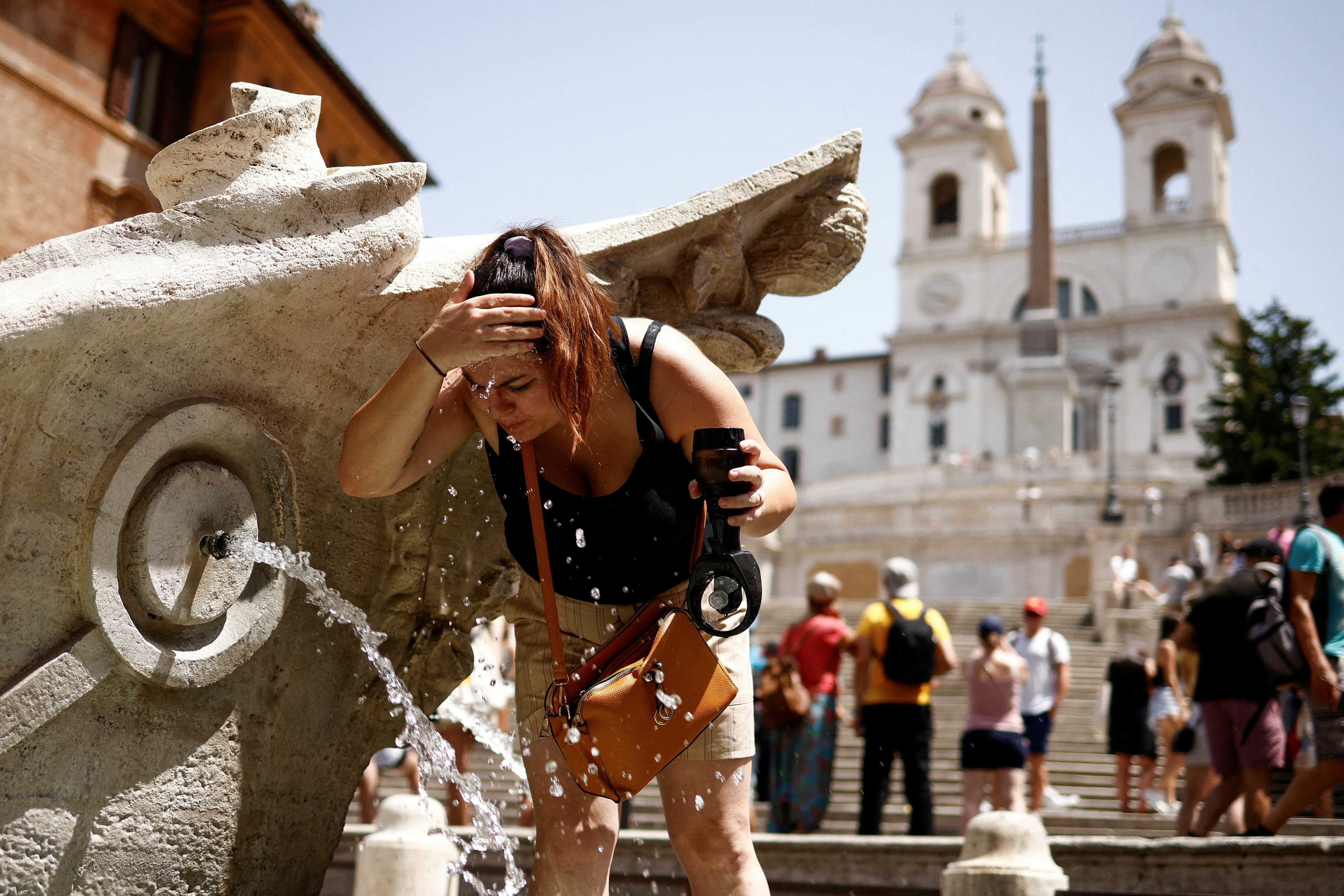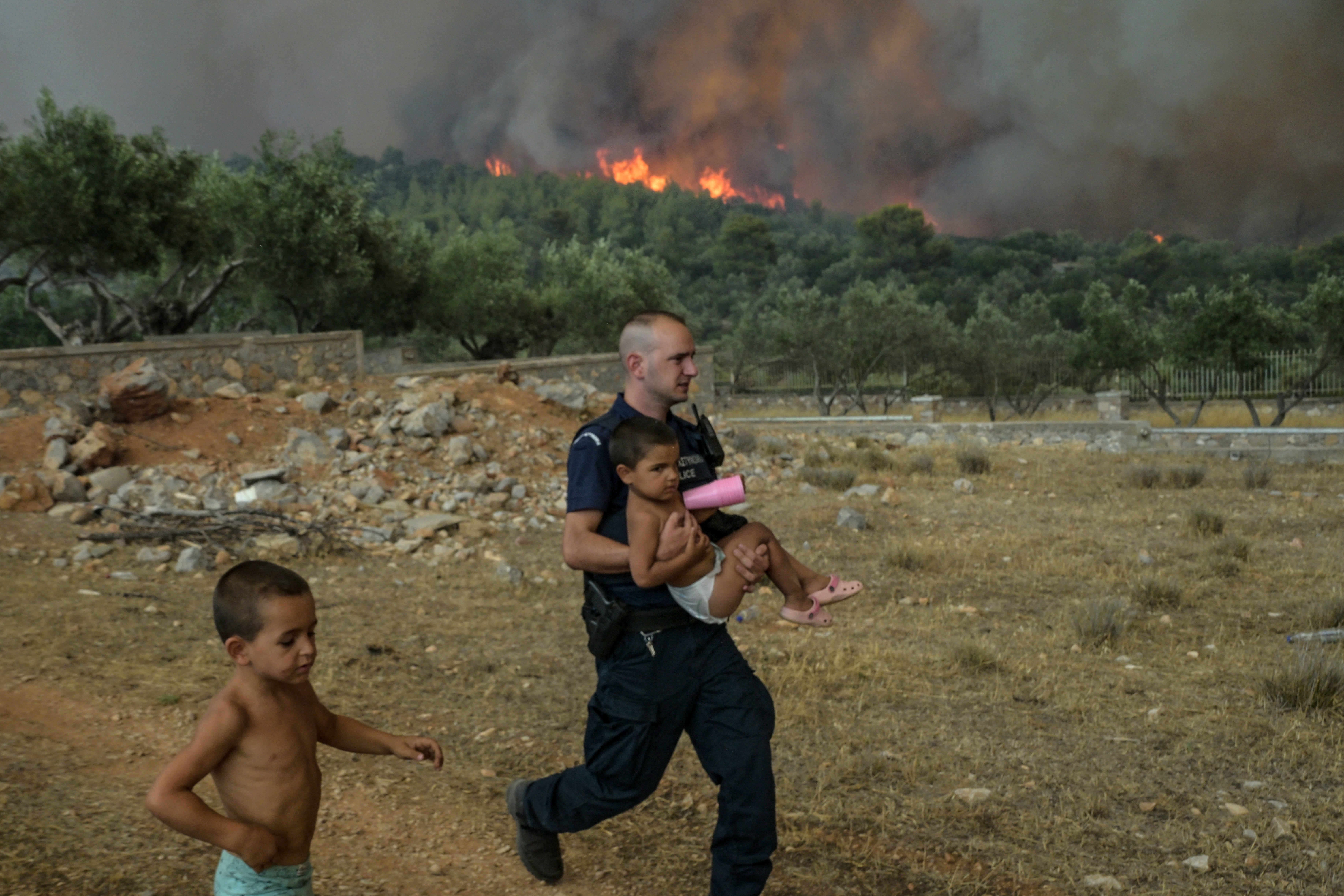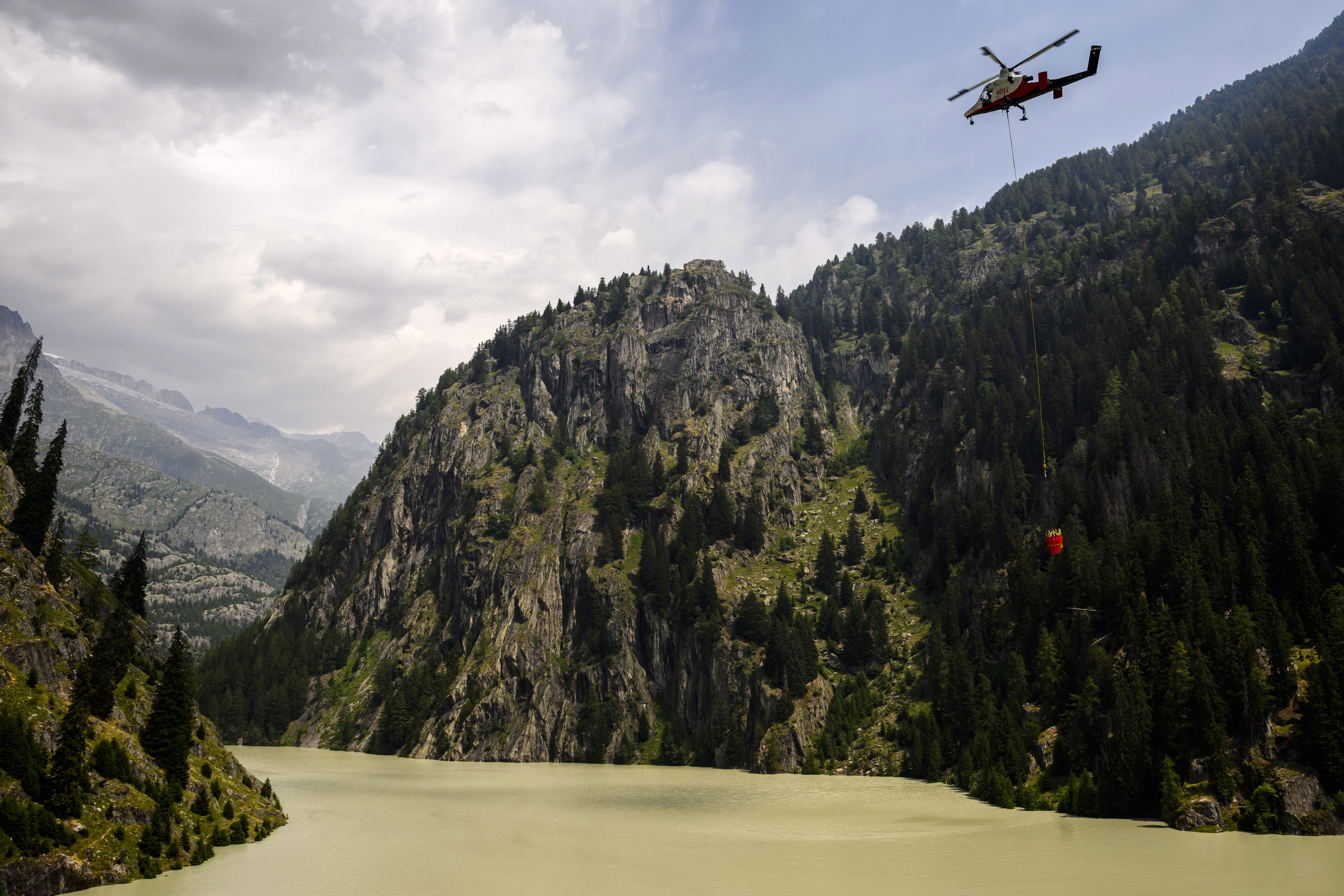Families unable to cancel summer holidays despite extreme heat warnings and wildfires
UK government has so far stopped short of issuing ‘don’t travel’ advice, meaning travel firms won't cover cancellations
Your support helps us to tell the story
From reproductive rights to climate change to Big Tech, The Independent is on the ground when the story is developing. Whether it's investigating the financials of Elon Musk's pro-Trump PAC or producing our latest documentary, 'The A Word', which shines a light on the American women fighting for reproductive rights, we know how important it is to parse out the facts from the messaging.
At such a critical moment in US history, we need reporters on the ground. Your donation allows us to keep sending journalists to speak to both sides of the story.
The Independent is trusted by Americans across the entire political spectrum. And unlike many other quality news outlets, we choose not to lock Americans out of our reporting and analysis with paywalls. We believe quality journalism should be available to everyone, paid for by those who can afford it.
Your support makes all the difference.Families face having to cancel their summer holidays to Spain and Greece with no compensation, despite the exceptional heatwave subjecting swathes of Europe to extreme temperatures and wildfires.
While the Foreign Office has issued warnings over scorching temperatures in both Spain and Greece, as wildfires rage on La Palma and near Athens, the UK government has so far stopped short of issuing “don’t travel” advice.
As a result, there is no automatic right for families to curtail, cancel or change planned trips, and holiday companies and airlines contacted by The Independent say normal terms and conditions will apply.

While provisional heat records were shattered in Rome and Catalonia on Tuesday 18 July, forecasters are bracing for Charon – the second heatwave in as many weeks, named after the Greek ferryman of the dead – to potentially surpass Europe’s hottest-ever temperature of 48.8C, set in Sicily two years ago.
The mercury hit 45C near Girona on Tuesday, as tourists and locals across the Mediterranean sweltered in 40C temperatures which had failed to fall below 25C in many places overnight, compounding the risks of fatalities – with 61,000 people estimated to have died last summer in Europe alone.
However, holiday companies argue that soaring temperatures in holiday hotspots are nothing new at this time of year, with some British holidaymakers happy to travel to Dubai and Egypt’s Red Sea coast in July, where temperatures above 40C are the norm.
Under the Package Travel Regulations, holidaymakers can cancel for a refund “if unavoidable and extraordinary circumstances occur at the place of destination or its immediate vicinity which significantly affect the performance of the package or the carriage of passengers to the destination”.
But unless authorities issue instructions that make normal holiday activities impossible, it is difficult to see how the rule might apply during the heatwave.

However, holidaymakers with a travel insurance policy in which a pre-existing health condition has been declared may have grounds to claim for a cancellation if they receive specific medical advice against travel to a very hot location.
The areas in which the European Union’s emergency response coordination centre has issued red alerts for high temperatures now include most of Italy, northeastern Spain, Croatia, Serbia, southern Bosnia and Herzegovina, and Montenegro.
Approached for comment about the dilemma facing some holidaygoers this week as the majority of schools in England and Wales break for the summer, the Foreign Office pointed The Independent to its official advice for Spain and Greece.
Noting the current “extreme temperatures”, those visiting both countries are advised to “check with your travel provider” before travelling and “follow the advice of local authorities at all times”, while those visiting Greece are told they can sign up to Athens’ official emergency alert system.

A Greek mayor in a town affected by the wildfires said residents were “living a nightmare” on Tuesday, as prime minister Kyriakos Mitsotakis rushed home early from a Brussels summit while hundreds of firefighters battled blazes stretching across five miles, fanned for a second day by erratic winds.
With hundreds of children forced to flee a summer camp on Monday, dozens of properties near Athens had been ravaged by the flames by the following day – after rescuers freed children and retirees from their homes, monks from a monastery, and horses from a stable.
Standing in the burnt-out house in Ano Lagonissi which had been his home for 32 years, Giorgos Nikolau, 89, told Reuters of how he fled the fire with just the swimming trunks and shirt he was wearing, adding: “I have nothing else, I don't even have other shoes. Nothing. I am finished.”
Authorities in Switzerland expressed fears on Tuesday that it could take weeks to fully extinguish a fire which engulfed a mountainside, forcing hundreds to flee – as firefighters in the Canary Islands battled the large blaze on La Palma for a fourth day.

The extreme conditions were mirrored around the world, as millions of people in the United States, Asia and Africa also contend with record-breaking heat, in some cases in excess of 50C – conditions scientists warn are becoming more frequent due to the fossil fuel-driven climate crisis.
With 2021 and 2022 having marked Europe’s hottest summers on record, according to the EU’s climate change body, tourism organisations have predicted that the heat could prompt a lasting shift in tourist habits, with more people choosing cooler destinations, or steering clear of summer travel.
The heat has also prompted some tourists to return home early. Anita Elshoy, who left a village north of Rome for Norway a week earlier than planned with her husband, told Reuters: “I got a lot of pain in the head, legs and [my] fingers swelled up and I became more and more dizzy.”
Warning that Europe was now experiencing “hotter and hotter temperatures for longer stretches of time every single summer”, the International Red Cross’s emergency health chief Panu Saaristo told reporters in Geneva: “Heatwaves are really an invisible killer.”






Join our commenting forum
Join thought-provoking conversations, follow other Independent readers and see their replies
Comments